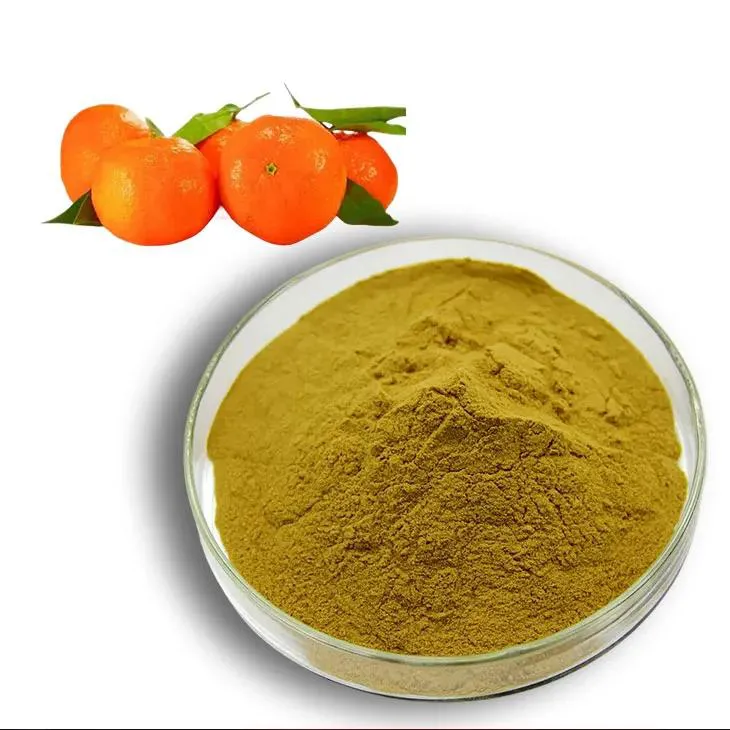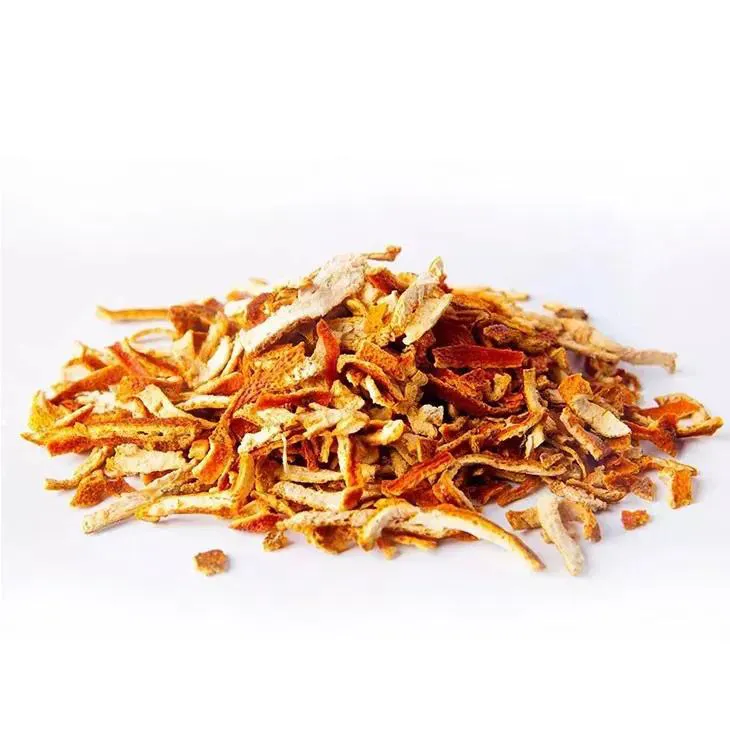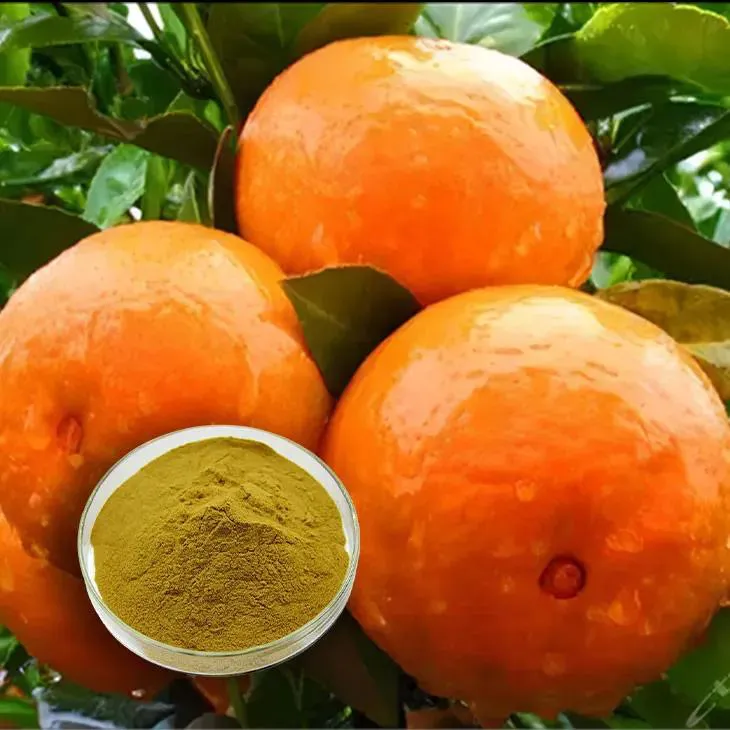- 0086-571-85302990
- sales@greenskybio.com
Five Efficacy of Citrus Bioflavonoids + Dosage and Side Effects
2024-11-12

1. Introduction to Citrus bioflavonoids
Citrus bioflavonoids are a group of plant - based compounds that are abundantly found in citrus fruits such as oranges, lemons, and grapefruits. These bioflavonoids are known for their antioxidant, anti - inflammatory, and other beneficial properties. They have been the subject of extensive research in recent years due to their potential contributions to human health.

2. The Five Efficacies of Citrus bioflavonoids
2.1 Antioxidant Activity
Citrus bioflavonoids are powerful antioxidants. They help to neutralize free radicals in the body. Free radicals are unstable molecules that can cause damage to cells, DNA, and proteins. By scavenging these free radicals, citrus bioflavonoids can protect the body from oxidative stress, which is associated with various chronic diseases such as heart disease, cancer, and neurodegenerative disorders.
2.2 Anti - Inflammatory Effects
These bioflavonoids also possess anti - inflammatory properties. Inflammation is a natural response of the body to injury or infection, but chronic inflammation can lead to a host of health problems. Citrus bioflavonoids can inhibit the production of inflammatory mediators such as cytokines and prostaglandins, thereby reducing inflammation in the body. This can be beneficial for conditions like arthritis, asthma, and inflammatory bowel disease.
2.3 Cardiovascular Health
- They can improve blood vessel function. Citrus bioflavonoids help to relax blood vessels, which can lead to better blood flow and lower blood pressure.
- Another aspect is their role in reducing cholesterol levels. Some studies suggest that they may help to lower LDL (bad) cholesterol while increasing HDL (good) cholesterol, thus contributing to a healthier lipid profile.
- Moreover, they can also prevent the formation of blood clots. By inhibiting platelet aggregation, citrus bioflavonoids reduce the risk of heart attacks and strokes.
2.4 Immune System Support
- Citrus bioflavonoids can enhance the function of the immune system. They stimulate the production of white blood cells, which are the body's first line of defense against infections.
- They also have antiviral and antibacterial properties. For example, some bioflavonoids have been shown to inhibit the growth of certain viruses and bacteria, helping the body to fight off infections more effectively.
2.5 Skin Health
- These bioflavonoids play a role in maintaining skin health. They can protect the skin from UV damage due to their antioxidant properties. By reducing oxidative stress on the skin, they can help to prevent premature aging, such as wrinkles and age spots.
- Citrus bioflavonoids also have anti - inflammatory effects on the skin, which can be beneficial for skin conditions like acne, eczema, and psoriasis.

3. Dosage of Citrus Bioflavonoids
- The appropriate dosage of citrus bioflavonoids can vary depending on several factors, including the specific form of the bioflavonoid (e.g., pure extract or as part of a supplement blend), the individual's age, health status, and the intended use.
- As a general guideline, for general health maintenance, a daily dose of 500 - 1000 mg of citrus bioflavonoid complex may be sufficient. However, it is always best to consult a healthcare professional before starting any new supplement regimen.
- In some cases, for specific health conditions such as high - level antioxidant support or to address inflammatory conditions, higher doses may be recommended, but this should be carefully monitored by a doctor.

4. Side Effects of Citrus Bioflavonoids
- Most people tolerate citrus bioflavonoids well when taken in appropriate doses. However, in some cases, side effects may occur.
- One possible side effect is gastrointestinal discomfort. This can include symptoms such as nausea, vomiting, diarrhea, or abdominal cramps. These symptoms are more likely to occur when taking high doses or if an individual has a sensitive stomach.
- There may also be a risk of allergic reactions, especially in individuals who are allergic to citrus fruits. Allergic reactions can range from mild symptoms such as itching, hives, or a rash to more severe symptoms such as difficulty breathing or anaphylaxis in rare cases.
- Interactions with medications are another concern. Citrus bioflavonoids may interact with certain medications, such as blood thinners or drugs metabolized by the liver. It is important to inform your healthcare provider if you are taking any medications before starting citrus bioflavonoid supplementation.
5. Conclusion
Citrus bioflavonoids offer a range of potential health benefits, from antioxidant and anti - inflammatory effects to support for cardiovascular health, the immune system, and skin health. However, it is important to be aware of the appropriate dosage and possible side effects. By consulting a healthcare professional and following their advice, individuals can potentially incorporate citrus bioflavonoids into their health regimens in a safe and effective manner.
FAQ:
What are the five main efficacy of citrus bioflavonoids?
Citrus bioflavonoids have several main efficacies. Firstly, they have antioxidant properties, which can help protect cells from damage caused by free radicals. Secondly, they may support the immune system, enhancing the body's ability to fight off infections. Thirdly, they could potentially have anti - inflammatory effects, reducing inflammation in the body. Fourthly, some studies suggest that they may contribute to cardiovascular health by improving blood vessel function and reducing cholesterol levels. Fifthly, they might play a role in improving skin health, for example, by promoting collagen production.
How should the dosage of citrus bioflavonoids be determined?
The appropriate dosage of citrus bioflavonoids can vary depending on several factors. In general, for dietary supplementation, dosages typically range from 500 - 1000 milligrams per day. However, it is best to consult a healthcare professional. They will consider factors such as an individual's age, overall health, and any pre - existing medical conditions. For example, if a person has a liver or kidney disorder, the dosage may need to be adjusted. Additionally, different forms of citrus bioflavonoids (such as tablets, capsules, or powders) may have different recommended dosages.
What are the possible side effects of citrus bioflavonoids?
When taken in normal doses, citrus bioflavonoids are generally considered safe for most people. However, some individuals may experience mild side effects. These can include gastrointestinal issues such as nausea, stomach upset, or diarrhea. In rare cases, allergic reactions may occur, especially in those who are allergic to citrus fruits. Also, if taken in excessive doses, there may be a risk of more severe side effects, although this is not common. It is important to note that if any unusual symptoms occur after taking citrus bioflavonoids, one should stop taking them and consult a doctor.
Can citrus bioflavonoids interact with medications?
Yes, citrus bioflavonoids can interact with certain medications. For example, they may interact with blood - thinning medications like warfarin. Since some citrus bioflavonoids have anti - platelet effects, taking them along with blood - thinning drugs may increase the risk of bleeding. Also, they may interact with some medications that are metabolized in the liver. If you are taking any medications, it is crucial to inform your healthcare provider before starting to take citrus bioflavonoids to avoid potential interactions.
Are there different types of citrus bioflavonoids, and do their efficacies vary?
Yes, there are different types of citrus bioflavonoids, such as Hesperidin, naringin, and rutin. Their efficacies can vary to some extent. Hesperidin, for example, has been studied for its potential benefits in improving blood vessel health and reducing inflammation. Naringin may have antioxidant and anti - inflammatory properties as well as potential effects on metabolism. Rutin is known for its antioxidant and capillary - strengthening properties. However, all types of citrus bioflavonoids generally share some common benefits such as antioxidant and anti - inflammatory activities.
Related literature
- Citrus Bioflavonoids: Chemistry, Pharmacology, and Therapeutic Potential"
- "The Role of Citrus Bioflavonoids in Health and Disease"
- "Citrus Bioflavonoids: A Review of Their Biological Activities and Health Benefits"
- ▶ Hesperidin
- ▶ citrus bioflavonoids
- ▶ plant extract
- ▶ lycopene
- ▶ Diosmin
- ▶ Grape seed extract
- ▶ Sea buckthorn Juice Powder
- ▶ Beetroot powder
- ▶ Hops Extract
- ▶ Artichoke Extract
- ▶ Reishi mushroom extract
- ▶ Astaxanthin
- ▶ Green Tea Extract
- ▶ Curcumin Extract
- ▶ Horse Chestnut Extract
- ▶ Other Problems
- ▶ Boswellia Serrata Extract
- ▶ Resveratrol Extract
- ▶ Marigold Extract
- ▶ Grape Leaf Extract
- ▶ blog3
-
Cranberry Plants and Skin - care Products.
2024-11-12
-
Garcinia Cambogia Extract
2024-11-12
-
Maitake Mushroom Extract
2024-11-12
-
Rosemary extract
2024-11-12
-
Cassia Seed Extract
2024-11-12
-
Coix Seed Extract
2024-11-12
-
Echinacea Extract
2024-11-12
-
Curcumin
2024-11-12
-
Tinospora cordifolia extract
2024-11-12
-
Maca Extract
2024-11-12
-
Konjac Powder
2024-11-12





















